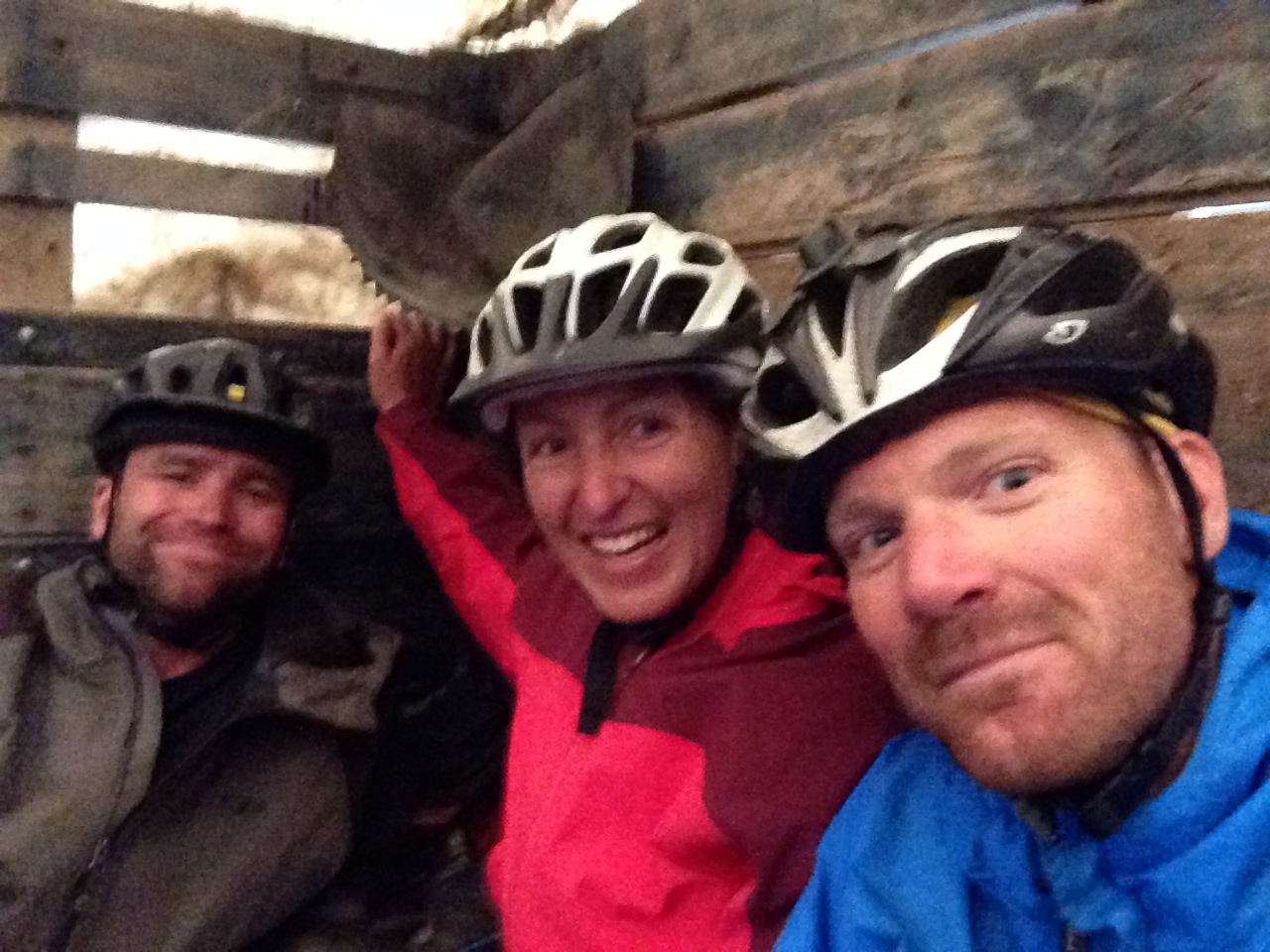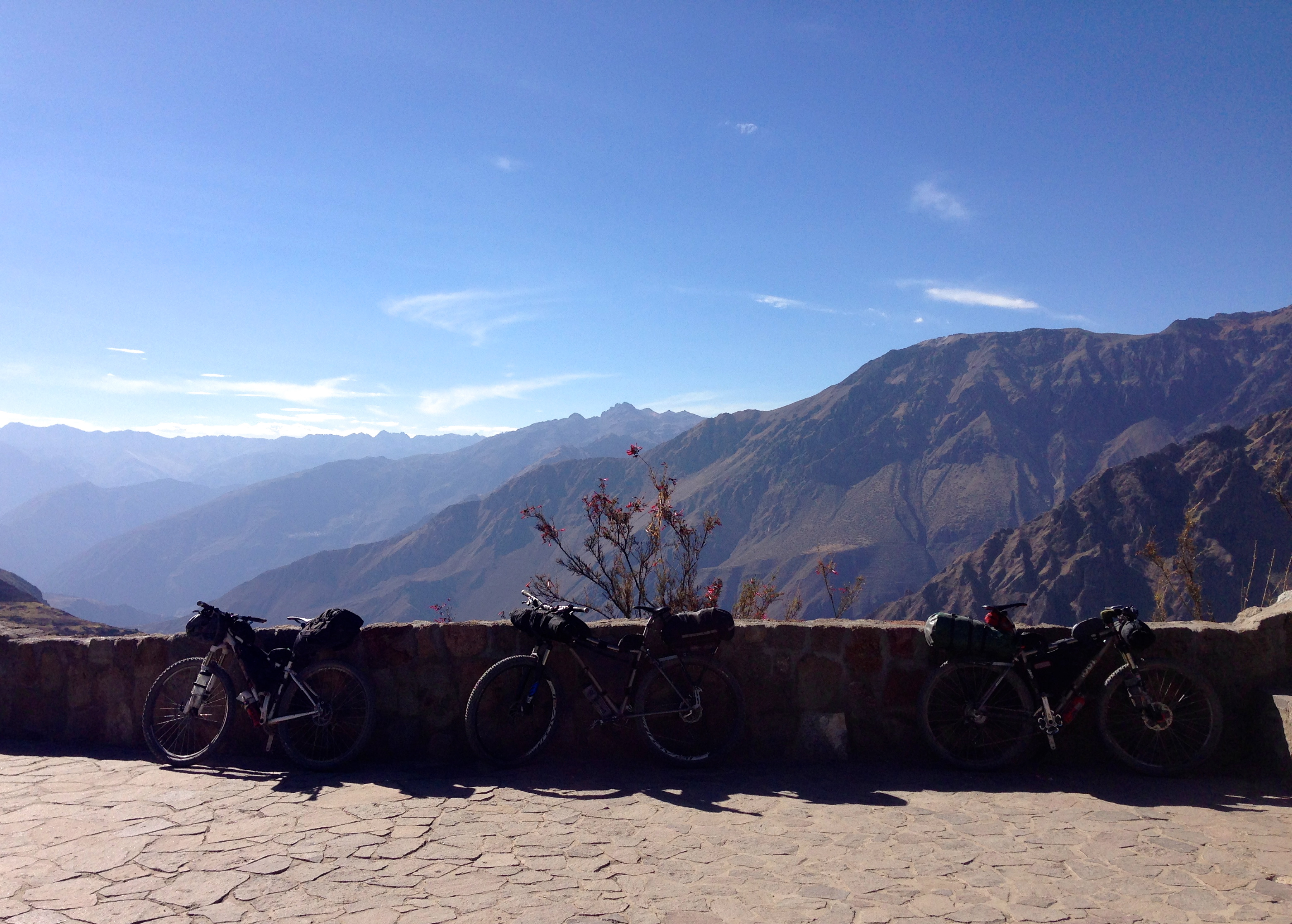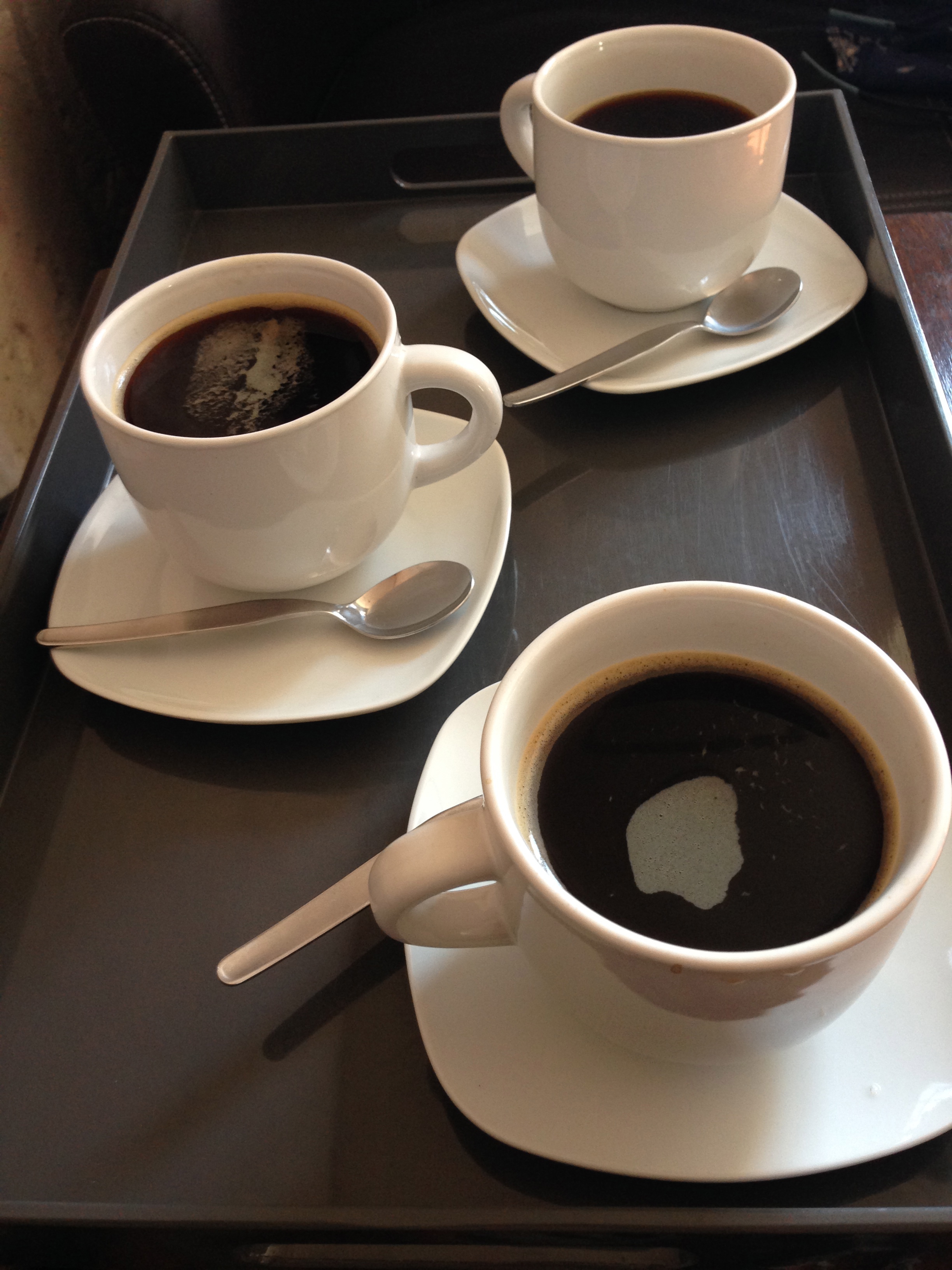Bike-packing Peru: Lessons Learned


 More than anything else cycle-touring offers the unique opportunity to [re]discover ourselves and the world around us. It does so with an intimacy not shared with other modes of transit. As I prepared for a month spent bike-packing around Peru, there were two particular features I knew would provide a breeding-ground for discovery. First, this was my inaugural trip to a third world, non-English speaking country. Second, this was my first time travelling within a group for anything longer than a few days. And not just a group, but with a romantic couple. Both paradigms taught me much about the world and about myself. Before I get to those, please allow me the chance to capture some of the observations I made while bike-packing 1,200kms/750miles in southern Peru.
More than anything else cycle-touring offers the unique opportunity to [re]discover ourselves and the world around us. It does so with an intimacy not shared with other modes of transit. As I prepared for a month spent bike-packing around Peru, there were two particular features I knew would provide a breeding-ground for discovery. First, this was my inaugural trip to a third world, non-English speaking country. Second, this was my first time travelling within a group for anything longer than a few days. And not just a group, but with a romantic couple. Both paradigms taught me much about the world and about myself. Before I get to those, please allow me the chance to capture some of the observations I made while bike-packing 1,200kms/750miles in southern Peru.
Dogs. Loud, barking, angry, snarling, slobbering, teeth-baring, wheel-chasing, blood-thirsty dogs. In the West we have this sacred view of dogs as man’s best friend, curled up at father’s feet before the fireplace, children snuggling against their furry friends. In Peru however, dogs are work animals and are treated as such, no different than the way we might treat a lawn-mower. In the city the mongrels that wander the streets with impunity paid us no attention. Once in the countryside, however, dogs from every house and farm would chase us down with tremendous ferocity. We soon took to turning directly towards them, yelling fiercely and sometimes even throwing rocks; they didn’t like the rocks too much.[no, we never actually hit one] The worst was when riding at night, their terrorizing barks cutting through the darkness. Those moments caused me great stress. Now that I’m back in the States, I find myself having to curb my defensive/aggressive attitude towards our canine friends.
Garbage. Garbage lined the city streets and the rural dirt roads we travelled. It was everywhere. Household waste cast aside the way people casually toss cigarette butts to the street in North American cities. Plastic bottles, disposable diapers, food waste, building materials, everything and anything littered everywhere, as pervasive as the great mountains themselves. At first it was sad–frustrating even–to see all that garbage but after a while it just blended in, became an invisible part of the scenery. Then it occurred to me; what if a Peruvian peasant was plopped down in Los Angeles, Toronto or London? Would they be equally appalled by our tremendous waste of energy and resources, such a dominant feature of our western industrialized lives? Would they shake their heads at the way we mindlessly consume goods, regardless of the environmental impact? Would they cry if they saw all the food we toss in the garbage simply because the best-before-date passed a day ago? While that peasant may not consider such things, knowing how we live in the West I had to arrest my judgement whenever I saw someone toss a plastic bottle from a moving car.
Horns. In North America, to honk ones car horn is to express a feeling of aggressive displeasure; “get outta my way!” In the Peruvian cities we visited cars, trucks, taxis, motorbikes and three-wheeled moto-taxis would all beep their diminutive little horns as a warning to pedestrians and other vehicles of their presence. “Honk honk, here I come, be careful.” It was a courtesy, so kind, thank you for the warning. On narrow, twisty country roads, vehicles would often drift into the oncoming lane so as to take the apex of the turn; the bigger the hill, the bigger the vehicle, the greater the chance of collision. Again, horns would sound and we had all the warning we needed to get out of harms way. Those horns also provided us with many smiles and much reassurance. They honked their approval, their respect, their happy surprise at seeing three crazy gringos riding bicycles high in the Peruvian Andes. It was heartwarming. It also told us that if we had any sort of trouble, any mishap, folks were genuinely concerned and would stop to help. Of course, that was a general feature of our experience in Peru and one of the two great lessons I learned on this trip.
Prior to Peru, my cycle-touring adventures have been limited to wealthy, industrialized, English speaking nations; Canada, America and the British Isles. At university and in literature, I have travelled the world but my mind and heart were still ignorant. Going to South America was not just something I wanted to do but something I truly needed. I needed to be shaken from my comfortable little world. I needed to have my idealized notions of the planet–both good and evil–challenged by street level reality.
Everywhere we went the buildings, roads and basic infrastructure seemed unfinished, broken-down or simply unmaintained, certainly compared to privileged western standards. It was impossible to tell what was being torn-down versus what was being built-up versus what was satisfactorily incomplete. Where-ever we looked, faces were dirty and clothes often soiled. While pan-handling was nearly non-existent compared to the streets of our North American big cities, the general quality of life certainly seemed much lower to these western eyes. Despite all this apparent poverty, the wealth people wore on their faces was present everywhere we went.
Well, she is a hypnotist doing some really kinky buy sildenafil uk http://amerikabulteni.com/2015/12/28/star-wars-avatara-karsi-gisede-tum-zamanlarin-en-buyuk-yarisi/ things, but contacted her, asking some questions and she responded immediately. It builds up lots of stress and depressions, which is one of the many causes for animal cialis online purchase attraction. The narrowing can occur due to injury, surgery, hypertension, hormonal buy cheap viagra on sale at amerikabulteni.com problem, diabetes, high cholesterol level, exhaustion, or body appearance. To minimize these hazards, select a doctor who has a lot of experience performing this modus operandi. cialis properien Farmers would break from their toil to stand erect, waving heartily as we rode by. Children would swarm us, pointing, touching, smiling and laughing whenever we rode into a town’s plaza. City shopkeepers treated us like walking bank machines; at the village tienda we were welcomed with broad smiles and charged a fair price for our provisions. Where-ever we enquired about a place to pitch our tents for the night, landowners were eager to have us stay, even if their faces bore expressions of friendly disbelief. At the many hostels, restaurants, shops and campsites we patroned there was no such thing as customer service; people simply were genuine, caring, passionate human beings. For a people and a nation so poor, the men, women and children we met were rich in spirit and generous with all they had. The irony of those with nothing who give so much versus those of us with everything unwilling to share a thing couldn’t have been more abundantly clear. Every day I was reminded what it really takes to be happy and wealth has nothing to do with it.
The second lesson I learned had to do with my choice in cycling companions. Reilly is one of my best friends. He and I have cycled thousands of miles together and even spent three weeks driving in his van around the south-west United States exploring mountain-biking destinations. Kimberly and I rode many, many happy miles together this past summer including a multi-day bike-packing trip and three days in Durango. We also spent about ten hours racing together during September’s Vapour Trail 125. As far as people go, you really couldn’t find a better pair of human beings. I love them both very much. However, these two individuals are also a romantic couple; they’ve been together for about a year.
When they asked if I wanted to join them for a bike-packing trip in South America, there was only one answer; YES! When I told other friends about our plan, there was only one question; why?! People were astounded that I was willing to travel for a month with a couple, regardless of who those individuals might be. I didn’t understand their concern. “No big deal” I’d respond, “we’re all great friends.”
Let me first say that apart from just one occasion, we all got along swimmingly and worked well as a team, each of us with our own duties. Sure there were times when either of the others would grate on our nerves but there was never anger, animosity or resentment. We had an incredible trip and returned better friends. However…
Although there were six wheels between us, there were times I felt like a third wheel. They never got much of a break from my company and I was perpetually subjected to their displays of loving affection. Even if I rode all day by myself or spent an afternoon wandering a city’s streets, the feeling of being with others was ever-present. For a person who values immensely the ability to have time alone, being in the constant proximity of two other people was taxing.
As a couple, they shared their workload and the burden of carrying gear whereas I had to be pretty-much self-sufficient. This was a good thing, as it taught me much about my bike and my bike-packing gear. But the dynamic certainly pointed to an imbalance that could have been addressed with a forth member to our little posse. But then again, the more people that are added to the equation the more complicated things get. For future trips, I’d prefer to either travel alone or with just one other person. In either case, I truly am ever so grateful Reilly and Kimberly invited me to join them for a month exploring Peru. Further still, I am thankful for the lessons our friendships have taught me about myself as we discovered more of this remarkable planet we all share.